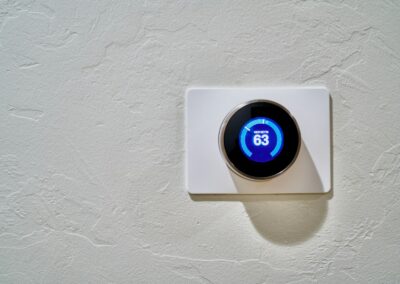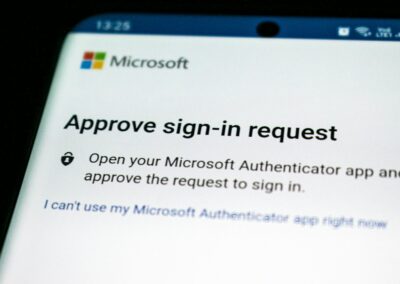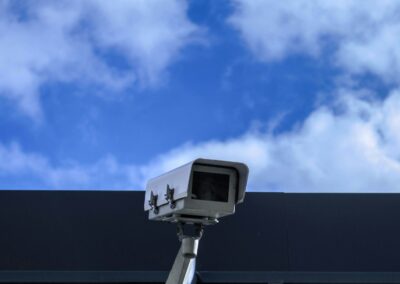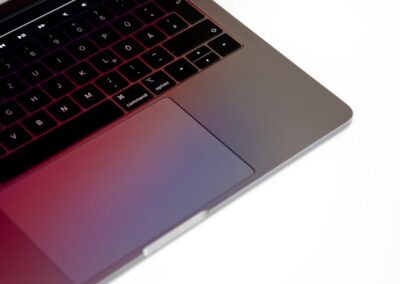Implementing Smart Cards for Secure Authentication in IoT Networks
The Importance of Multi-Factor Authentication in IoT Security
Using smart cards for MFA in IoT networks is becoming an increasingly critical strategy for securing the vast and complex ecosystems that IoT devices create. As IoT networks expand across sectors like healthcare, finance, and smart city infrastructures in Saudi Arabia and the UAE, the need for robust security mechanisms to prevent unauthorized access becomes paramount. Multi-Factor Authentication (MFA) is a security process that requires users to provide multiple forms of identification before gaining access to a network. In IoT environments, where devices often handle sensitive data and control critical operations, MFA can significantly reduce the risk of cyber attacks.
Smart cards, which are physical cards embedded with microchips, offer a reliable method for implementing MFA. These cards can store cryptographic keys and user credentials, ensuring that only authorized users can access IoT devices and networks. For instance, in Riyadh’s smart city initiatives, smart cards can be used to authenticate access to traffic management systems, preventing unauthorized alterations that could disrupt urban mobility. Similarly, in Dubai’s financial sector, smart cards can secure transactions by providing an additional layer of authentication for IoT-enabled payment systems.
How Smart Cards Enhance IoT Network Security
Smart cards enhance IoT network security by providing a tamper-resistant form of authentication that is difficult for cybercriminals to replicate or bypass. Unlike passwords, which can be easily stolen or guessed, smart cards require physical possession, making unauthorized access significantly more challenging. Additionally, smart cards can be integrated with other authentication factors, such as biometric verification or PIN codes, to create a multi-layered security approach.
In Saudi Arabia’s healthcare sector, where IoT devices monitor patient health and manage medical records, smart cards can ensure that only authorized healthcare professionals have access to sensitive patient data. This not only protects patient privacy but also ensures that medical decisions are made based on accurate and secure information. Moreover, smart cards can be used to control access to IoT devices in industrial settings, such as in the UAE’s oil and gas industry, where they can prevent unauthorized control of critical machinery and infrastructure.
Furthermore, the integration of smart cards with IoT networks supports secure communication protocols, ensuring that data transmitted between devices and central systems is encrypted and protected from interception. This is particularly important in environments where data integrity is crucial, such as in Riyadh’s energy management systems, where smart cards can secure the data flow between smart meters and control centers.
Best Practices for Implementing Smart Cards in IoT Networks
To maximize the effectiveness of smart cards for MFA in IoT networks, several best practices should be followed. First, organizations should ensure that smart card issuance is secure, with rigorous identity verification processes to prevent the distribution of cards to unauthorized individuals. This can include requiring multiple forms of identification and conducting background checks for users who will be granted access to critical IoT systems.
Second, it is essential to maintain robust card management systems that can track the issuance, use, and deactivation of smart cards. In the UAE’s smart city projects, for example, this can ensure that lost or stolen cards are quickly deactivated, preventing unauthorized access. Regular audits and updates of the card management system can help maintain its security and efficiency.
Third, organizations should integrate smart card use with secure, centralized authentication servers that can manage and validate authentication requests in real-time. This integration can be further enhanced by employing end-to-end encryption for all communications between IoT devices and authentication servers. In environments like Riyadh’s financial sector, this approach can protect sensitive transactions and prevent data breaches.
Strategic Implementation and Leadership in IoT Security
Leveraging Executive Leadership for Successful Implementation
The successful implementation of smart cards for MFA in IoT networks requires strong executive leadership and strategic planning. Leaders in Saudi Arabia and the UAE must prioritize cybersecurity and ensure that adequate resources are allocated for the deployment and maintenance of secure authentication systems. Executive coaching services can support leaders in developing the necessary skills to oversee these initiatives and foster a culture of security within their organizations.
In Riyadh and Dubai, where IoT technology is integral to various sectors, leadership must focus on aligning cybersecurity strategies with organizational goals. By establishing clear policies for smart card issuance and use, and by ensuring ongoing employee training on security best practices, leaders can drive the successful adoption of MFA systems that protect their IoT networks from evolving cyber threats.
Investing in Advanced Security Technologies
Investing in advanced security technologies is essential for enhancing the effectiveness of smart cards in IoT networks. This includes integrating smart cards with biometric systems, such as fingerprint or facial recognition, to provide additional layers of security. Biometric data stored on smart cards can be used to verify user identity during the authentication process, making it even more difficult for unauthorized users to gain access.
In Saudi Arabia’s industrial sector, biometric-enhanced smart cards can be used to control access to IoT-enabled machinery and systems, ensuring that only qualified personnel can operate critical equipment. Similarly, in the UAE’s healthcare facilities, combining smart cards with biometric verification can protect patient data and ensure that only authorized medical professionals can access and update health records.
Additionally, organizations should explore the use of blockchain technology to enhance the security of smart card authentication systems. Blockchain can provide a decentralized and tamper-proof ledger for tracking and verifying smart card transactions, ensuring that all authentication events are securely recorded and cannot be altered by malicious actors. This approach can be particularly valuable in environments where data integrity and transparency are paramount, such as in Dubai’s financial services sector.
Ensuring Long-Term Success Through Continuous Improvement
Continuous improvement is key to ensuring the long-term success of smart card-based MFA systems in IoT networks. This involves regularly reviewing and updating security protocols to address new and emerging threats. Organizations should conduct periodic security assessments to identify potential vulnerabilities in their smart card systems and take proactive measures to mitigate these risks.
In Riyadh’s smart city projects, for example, regular security reviews can help identify weaknesses in the authentication system and ensure that smart cards continue to provide robust protection against unauthorized access. Similarly, in Dubai’s financial sector, continuous monitoring and improvement of smart card systems can safeguard against evolving cyber threats and maintain the integrity of financial transactions.
Moreover, organizations should stay informed about advancements in smart card technology and cybersecurity practices. By adopting the latest innovations and best practices, businesses can ensure that their smart card-based MFA systems remain effective in securing IoT networks and protecting sensitive data.
Conclusion
Using smart cards for MFA in IoT networks provides a powerful and secure method of authentication that can significantly enhance the security of IoT ecosystems. By following best practices for smart card implementation, leveraging executive leadership, investing in advanced security technologies, and committing to continuous improvement, organizations in Saudi Arabia and the UAE can protect their IoT networks from cyber threats and ensure the success of their digital transformation initiatives. As IoT adoption continues to grow, robust security measures such as smart card-based MFA will be essential for safeguarding critical infrastructure and sensitive data.
—
#SmartCards #MFA #IoTNetworks #SecureAuthentication #Cybersecurity #SaudiArabiaTech #UAETech #ModernTechnology #BusinessSuccess #LeadershipSkills #ProjectManagement






























